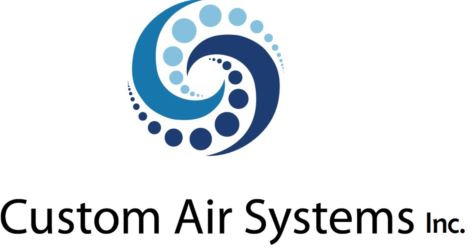
If you’re uncertain whether your Port St. Lucie house has unhealthy indoor air quality (IAQ), it probably does.
We are indoors a lot. As a matter of fact, we’re in a building up to 90% of the time, according to the U.S. Environmental Protection Agency. And the air inside homes could be 2–5 times worse than outdoors, which might create long-term health issues.
Most Common Sources of Unsatisfactory IAQ
We’ve made a list of the most frequent origins of inferior IAQ, the troubles they make and how you can take care of these indoor air pollutants. If you’re worried about the air inside your house, we advise talking with a professional like Custom Air Systems Inc about which solutions are ideal for your home.
Volatile Organic Compounds
Volatile organic compounds, or VOCs, are vapors leaked by regular household products.
They’re found in paint and stains in addition to:
- Furniture
- Carpet
- Building materials
- Cleaning products
- Cosmetics
- Air fresheners
- Candles
When these vapors accumulate in your home, they can irritate your eyes, nose and throat. They might also lead to headaches and nausea. Regardless of whether your residence is in a rural or industrial space, an EPA study found indoor levels of these pollutants can be 2–5 times greater than the air outside your home.
Always adhere to the manufacturer’s guidelines when painting or cleaning. Unlatching a window can help fumes disappear faster.
Air purification systems can also improve your air. This unit partners with your heating and cooling equipment to clean indoor air. When hunting for a model, ensure it’s specifically made to eliminate VOCs.
Dust and Pet Dander
Dust and pet dander can aggravate health problems like asthma and allergies, especially when it continuously gets redistributed by your home’s comfort system. While you can vacuum more regularly and buy an improved air filter, an air filtration system might be a better solution.
This equipment hooks to your heating and cooling equipment to deliver strong filtration. Some types have hospital-level filtration for removing particles and bioaerosols.
Lasting Odors
Newer residences are closely sealed to increase energy efficiency. While this is good for your heating and cooling bill, it’s not very good for your IAQ.
Musty odors can stay around for a greater amount of time because your home is pulling in reduced fresh air. As keeping your windows open all year-round isn’t an option, here are two approaches you can make your indoor air smell cleaner.
An air purification system is put in your HVAC system to eliminate odors before they get released again. Search for one with a carbon filter and the power to wipe out damaging VOCs. This equipment can also help keep your family healthy by eliminating most bacteria and ordinary allergy triggers like pollen and mold spores.
A ventilation system pulls out stale indoor air and substitutes it with clean outdoor air. There are two models of units (heat recovery and energy recovery), so call our professionals for more details on which solution is ideal for your house.
Uneven Humidity
It’s critical your house’s humidity remains even. Air that has too much moisture can create mold, while dry air can create respiratory troubles.
Our pros suggest 40–50% for top comfort. To keep yours in balance, think about getting a whole-home humidifier or whole-home dehumidifier with your HVAC unit.
Instead of having to drag a humidifier from room to room, this solution delivers balanced humidity around your house.
Carbon Monoxide
Carbon monoxide is colorless gas you can’t smell. It’s caused by insufficient combustion in fuel-burning units, like gas heating systems, water heaters or fireplaces.
It creates a severe health risk. In small levels, it can create flu-like ailments like headaches and nausea. It can be deadly in large amounts.
We advise yearly furnace maintenance to double-check your unit is running smoothly. This job allows our technicians to spot issues before they begin, including malfunctions that can cause carbon monoxide leaks.
The best method to keep your residence free of carbon monoxide is to install detectors. These alarms need to be on every floor by bedrooms and living spaces.
Enhance Your Home’s Air Quality with the Custom Air Systems Inc Professionals
Aware that your residence has poor air quality but not sure how to make it better? Or unsure which product is ideal for you? Give our approachable HVAC pros a call at 772-247-2283 or contact us online now. With free estimates and professional assistance, we’ll help you find the ideal equipment for your needs and budget.




